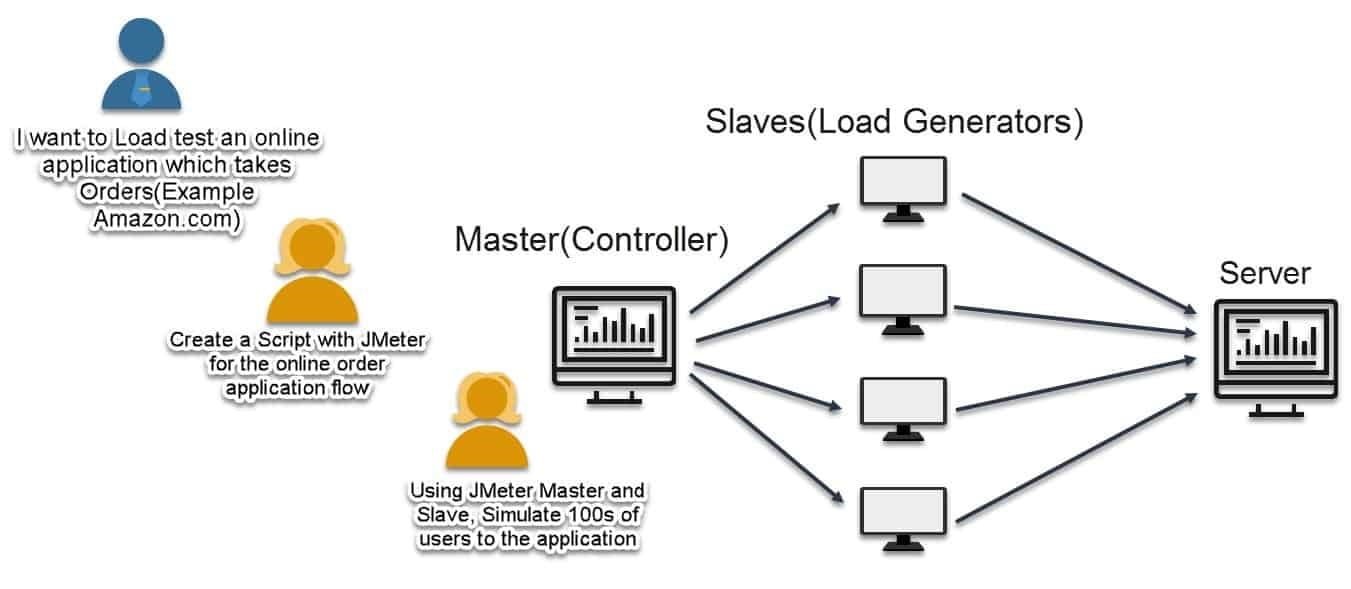Introduction
We are residing in an evolving world. Everything here is becoming dynamic, making the competition strong. And for taking a stand, it is necessary to adapt to the latest technological trends. Apache’s JMeter is one such trend.
Several developers are utilizing it to fulfill their requirements and the rising demands of the customers. There are several utilities of JMeter in terms of testing different kinds of apps. Everything you need to know about JMeter is discussed in this article.
What is JMeter?
JMeter is an open-source tool provided by Apache. It is a java-based desktop app generally used for testing multiple types of client-server apps like web services, websites, FTP servers, databases, etc. The users can test the performance of dynamic and static resources and dynamic web applications.
One can use JMeter for stimulating a heavy load on a single server, group of servers, object, or network for testing its strength and for analyzing the overall performance under multiple load types.

JMeter works at a protocol level and is not a browser. As far as remote services and web services are concerned, JMeter looks like a random browser. Specifically, JMeter does not contribute to us executing the JavaScript that is seen in the HTML pages. And also, it does not render the HTML as a browser does.
What Are The Applications That JMeter Can Test?
Different applications can be seamlessly tested by JMeter. They are as follows:
- Web Services- SOAP and REST
- Websites- HTTP, HTTPS (PHP, Java, ASP.NET, NodeJS, and more)
- FTP Servers
- Database Servers via JDBC
- Mail Servers- POP3, SMTP, IMAP
- LDAP Servers
- TCP Servers
- Shell Scripts or Native Commands
- Java Objects
- Message-oriented middleware (MOM) via JMS
Features of JMeter
Some of the features of JMeter are described below:
- It is available free of cost. There is no licensing cost, and it is an open-source network.
- JMeter can load test multiple types of apps. Performance testing of apps can be done by using it.
- JMeter is platform-independent because it is completely Java-based. Thus, it can operate on several platforms.
- Along with the drag-and-drop features, JMeter offers playback and recording options. This contributes to the easy and fast creation of scripts.
- As JMeter is open-source, the source code can be customized by the developers according to particular requirements.
- JMeter supports distributed load testing features. Here, the developers can make a master-slave set up to carry out load tests on several machines.
- Online tutorials are available for JMeter. It also has powerful and large community support. Additionally, there is the free availability of plugins in JMeter. These plugins help in multiple aspects of script analysis and creation.
- The full-featured Test IDE enables fast recording, creating, and debugging of the Test Plan.
Wrapping Up
JMeter is a completely Java application designed for loading test functional behavior and measuring performance. Initially, it was designed to test web apps but has expanded. It is already in development, and in the future, new features can be expected that makes it more flexible to use.
But, if you are a developer and want to put JMeter to use, understand your requirements and craft a solid plan for commencing further.
Ready to set JMeter to work for your web application? Polyxer Systems can help you optimize your performance testing process.
Contact us today to improve the quality of your application.




